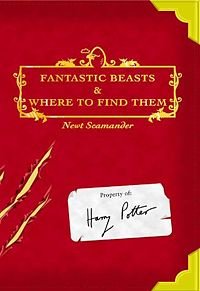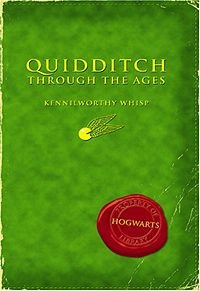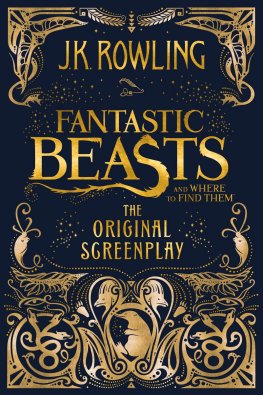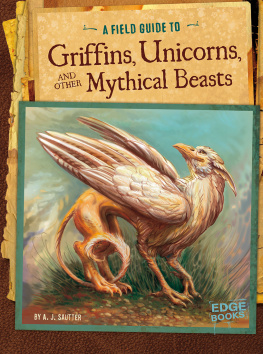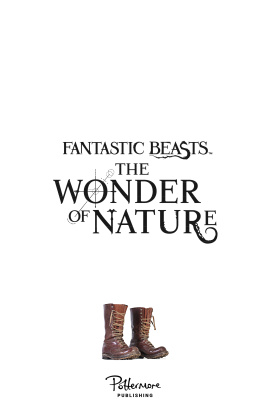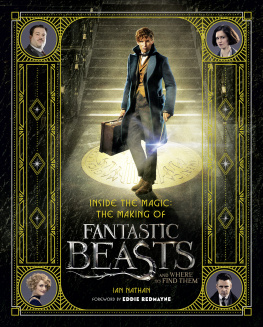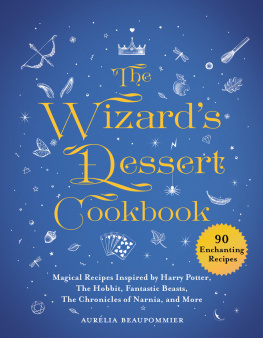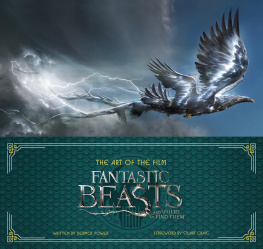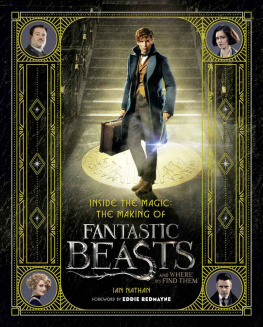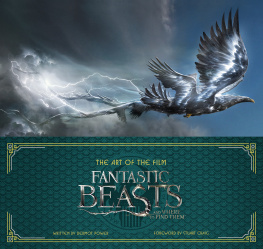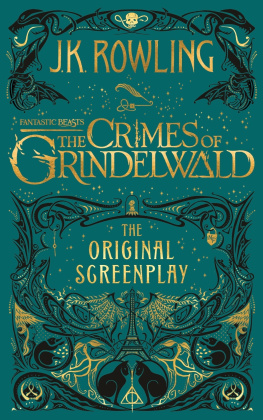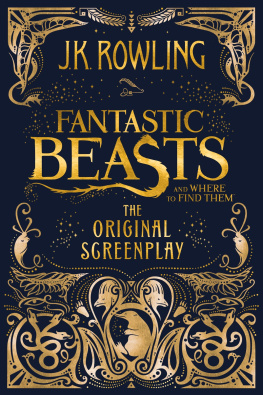Dzhoan Rouling - Fantastic Beasts and Where to Find Them
Here you can read online Dzhoan Rouling - Fantastic Beasts and Where to Find Them full text of the book (entire story) in english for free. Download pdf and epub, get meaning, cover and reviews about this ebook. year: 2001, publisher: Bloomsbury (UK), Scholastic (US), Raincoast (Canada), genre: Romance novel. Description of the work, (preface) as well as reviews are available. Best literature library LitArk.com created for fans of good reading and offers a wide selection of genres:
Romance novel
Science fiction
Adventure
Detective
Science
History
Home and family
Prose
Art
Politics
Computer
Non-fiction
Religion
Business
Children
Humor
Choose a favorite category and find really read worthwhile books. Enjoy immersion in the world of imagination, feel the emotions of the characters or learn something new for yourself, make an fascinating discovery.
- Book:Fantastic Beasts and Where to Find Them
- Author:
- Publisher:Bloomsbury (UK), Scholastic (US), Raincoast (Canada)
- Genre:
- Year:2001
- ISBN:0-7475-5466-8
- Rating:3 / 5
- Favourites:Add to favourites
- Your mark:
- 60
- 1
- 2
- 3
- 4
- 5
Fantastic Beasts and Where to Find Them: summary, description and annotation
We offer to read an annotation, description, summary or preface (depends on what the author of the book "Fantastic Beasts and Where to Find Them" wrote himself). If you haven't found the necessary information about the book — write in the comments, we will try to find it.
Fantastic Beasts and Where to Find Them — read online for free the complete book (whole text) full work
Below is the text of the book, divided by pages. System saving the place of the last page read, allows you to conveniently read the book "Fantastic Beasts and Where to Find Them" online for free, without having to search again every time where you left off. Put a bookmark, and you can go to the page where you finished reading at any time.
Font size:
Interval:
Bookmark:
Joanne Rowling
FANTASTIC BEASTS AND WHERE TO FIND THEM NEWT SCAMANDER
Special edition with a foreword by ALBUS DUMBLEDORE



CONTENTS
ABOUT THE AUTHOR

NEWTON ('newt') Artemis Fido Scamander was (|born in 1897. His interest in fabulous beasts was encouraged by his mother, who was an enthusiastic breeder of fancy Hippogrifis. Upon graduation from Hogwarts School of Witchcraft and Wizardry, Mr Scamander joined the Ministry of Magic in the Department for the Regulation and Control of Magical Creatures. After two years at the Office for House-Elf Relocation, years he describes as 'tedious in the extreme', he was transferred to the Beast Division, where his prodigious knowledge of bizarre magical animals ensured his rapid promotion.
Although almost solely responsible for the creation of the Werewolf Register in 1947, he says he is proudest of the Ban on Experimental Breeding, passed in 1965, which effectively prevented the creation of new and untameable monsters within Britain. Mr Scamander's work with the Dragon Research and Restraint Bureau led to many research trips abroad, during which he collected information for his worldwide best-seller Fantastic Beasts and Where to Find Them, now in its fifty-second edition.
Newt Scamander was awarded the Order of Merlin, Second Class, in 1979 in recognition of his services to the study of magical beasts, Magizoology. Now retired, he lives in Dorset with his wife Porpenrina and their pet Kneazles: Hoppy, Milly and Mauler.
FOREWORD
I WAS DEEPLY honoured when Newt Scamander asked me to write the foreword for this very special edition of Fantastic Beasts and Where to Find Them. Newt's masterpiece has been an approved textbook at Hogwarts School of Witchcraft and Wizardry ever since its publication and must take a substantial amount of credit for our students' consistently high results in Care of Magical Creatures examinations yet it is not a book to be confined to the classroom. No wizarding household is complete without a copy of Fantastic Beasts, well thumbed by the generations who have riffled its pages in search of the best way to rid the lawn of Horklumps, interpret the mournful cries of the Augurey or cure their pet Puffskein of drinking out of the toilet.
This edition, however, has a loftier purpose than the instruction of the wizarding community. For the first time in the history of the noble publishing house of Obscurus, one of its tides is to be made available to Muggles.
The work of Comic Relief in fighting some of the worst forms of human suffering is well known in the Muggle world, so it is to my fellow wizards that I now address myself. Know, then, that we are not alone in recognising the curative power of laughter, that Muggles are familiar with it too, and that they have harnessed this gift in a most imaginative way, using it to raise funds with which to help save and better lives a brand of magic to which we all aspire. Comic Relief has raised 174 million pounds since 1985 (thirty-four million, eight hundred and seventy-two Galleons, fourteen Sickles and seven Knuts).
It is now the wizarding world's privilege to help Comic Relief in their endeavour. You hold in your hands a duplicate of Harry Potter's own copy of Fantastic Beasts, complete with his and his friends' informative notes in the margins. Although Harry seemed a trifle reluctant to allow this book to be reprinted in its present form, our friends at Comic Relief feel that his small additions will add to the entertaining tone of the book. Mr Newt Scamander, long since resigned to the relentless graffitiing of his masterpiece, has agreed.
This edition of Fantastic Beasts will be sold at Flourish and Blotts as well as in Muggle bookshops. Wizards wishing to make additional donations should do so through Gringotts Wizarding Bank (ask for Griphook).
All that remains is for me to warn anyone who has read this far without purchasing this book that it carries a Thief's Curse. I would like to take this opportunity to reassure Muggle purchasers that the amusing creatures described hereafter are fictional and cannot hurt you.To wizards, I say merely: Draco dormiens nunquam titillandus.
INTRODUCTION
About This Book
Fantastic Beasts and Where to Find Them represents the fruit of many years' travel and research. I look back across the years to the seven-year-old wizard who spent hours in his bedroom dismembering Horklumps and I envy him the journeys to come: from darkest jungle to brightest desert, from mountain peak to marshy bog, that grubby Horklump-encrusted boy would track, as he grew up, the beasts described in the following pages. I have visited lairs, burrows and nests across five continents, observed the curious habits of magical beasts in a hundred countries, witnessed their powers, gained their trust and, on occasion, beaten them off with my travelling kettle.
The first edition of Fantastic Beasts was commissioned back in 1918 by Mr Augustus Worme of Obscurus Books, who was kind enough to ask me whether I would consider writing an authoritative compendium of magical creatures for his publishing house. I was then but a lowly Ministry of Magic employee and leapt at the chance both to augment my pitiful salary of two Sickles a week and to spend my holidays travelling the globe in search of new magical species. The rest is publishing history: Fantastic Beasts is now in its fifty-second edition.
This introduction is intended to answer a few of the most frequently asked questions that have been arriving in my weekly postbag ever since this book was first published in 1927. The first of these is that most fundamental question of all what is a 'beast'?
What Is a Beast?
The definition of a 'beast' has caused controversy for centuries. Though this might surprise some first-time students of Magizoology, the problem might come into clearer focus if we take a moment to consider three types of magical creature.

Werewolves spend most of their time as humans (whether wizard or Muggle). Once a month, however, they transform into savage, four-legged beasts of murderous intent and no human conscience.
The centaurs' habits are not human-like; they live in the wild, refuse clothing, prefer to live apart from wizards and Muggles alike and yet have intelligence equal to theirs.
Trolls bear a humanoid appearance, walk upright, may be taught a few simple words and yet are less intelligent than the dullest unicorn and possess no magical powers in their own right except for their prodigious and unnatural strength.
We now ask ourselves: which of these creatures is a 'being' that is to say, a creature worthy of legal rights and a voice in the governance of the magical world and which is a 'beast'?
Early attempts at deciding which magical creatures should be designated 'beasts' were extremely crude.
Burdock Muldoon, Chief of the Wizards' Council (The Wizards' Council preceded the Ministry of Magic) in the fourteenth century, decreed that any member of the magical community that walked on two legs would henceforth be granted the status of 'being', all others to remain 'beasts'. In a spirit of friendship he summoned all 'beings' to meet with the wizards at a summit to discuss new magical laws and found to his intense dismay that he had miscalculated. The meeting hall was crammed with goblins who had brought with them as many two-legged creatures as they could find. As Bathilda Bagshot tells us in A History of Magic:
Font size:
Interval:
Bookmark:
Similar books «Fantastic Beasts and Where to Find Them»
Look at similar books to Fantastic Beasts and Where to Find Them. We have selected literature similar in name and meaning in the hope of providing readers with more options to find new, interesting, not yet read works.
Discussion, reviews of the book Fantastic Beasts and Where to Find Them and just readers' own opinions. Leave your comments, write what you think about the work, its meaning or the main characters. Specify what exactly you liked and what you didn't like, and why you think so.

